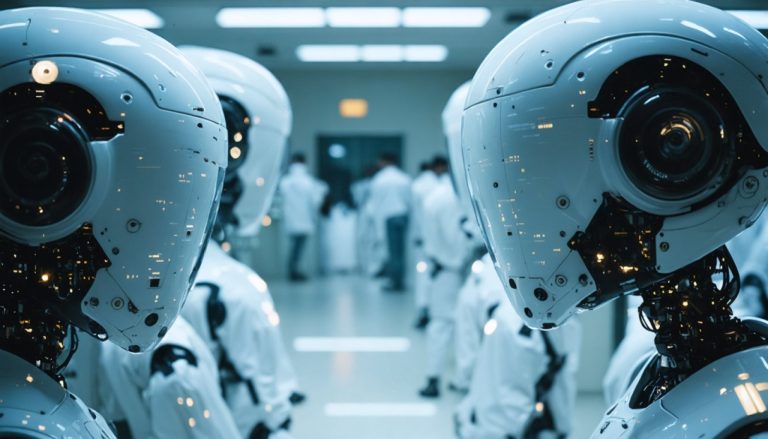
- Global research highlights AI’s role in education, raising concerns about its impact on critical thinking skills.
- 64% of surveyed students fear AI may erode intellectual autonomy, while educators focus on data security and ethics.
- A significant portion of students use AI for writing, but many worry about losing creative and analytical depth.
- Experts warn that over-reliance on AI can weaken critical thinking, emphasizing the need for balanced use.
- Educators face the challenge of integrating AI while fostering creativity, ethical reasoning, and personal connections.
- The future curriculum should enhance algorithmic literacy to prepare students for a tech-driven world.
- AI should complement, not replace, human intuition to enrich the educational experience.
- The ongoing challenge is to balance AI’s potential benefits with safeguarding cognitive engagement and wisdom.
Across bustling classrooms and hallowed university halls, a silent revolution is quietly unfolding. As artificial intelligence weaves itself into the fabric of education, both students and educators are awakening to its profound implications on learning. Recent global research reveals a stark reality: while they eagerly harness AI’s capabilities, students harbor deep concerns over its potential to erode their critical thinking skills.
Imagine a world where answers are effortlessly conjured with a click—a realm where AI smooths out the tough edges of learning, turning academic challenges into mere exercises in efficiency. In a sweeping study surveying 3,500 participants across seven countries, a striking 64% of students expressed trepidation over AI’s impact on their intellectual autonomy. Educators and administrators, in contrast, worry about data security and ethical boundaries, but as figures suggest, students are more apprehensive about what they might lose.
Consider the craft of writing—two-thirds of students confess they use AI, but over half fear it strips away the essence of critical thought. This concern isn’t just theoretical. When technology conjures solutions, learners may skip the nuanced steps of analysis and creativity that foster deeper understanding. It’s akin to cramming for an exam by merely scanning a textbook’s highlights; the subtleties that shape true mastery are lost amid shortcuts.
Experts liken critical thinking to a muscle that atrophies without challenge. If education becomes a dance with machines, where does the student find room to question, to reason independently? The danger lies not in the tool itself but in its unchecked use. AI, far from being malevolent, can truly enrich the educational tapestry if wielded correctly.
Educators grapple with this dichotomy—embracing AI’s benefits while guarding against complacency. Crafting assignments impervious to machine-generated answers might be a short-term fix, but reimagining education holistically is essential in the AI era. A future-ready curriculum should prioritize creativity, ethical reasoning, and interpersonal connections—the uniquely human skills impervious to automation.
Responsible AI integration also calls for clarity and ethical training. Educational models must be inclusive of algorithmic literacy, preparing students for a world where technology shapes not just information access but personal judgment. When AI acts as an ally to human intuition instead of a surrogate, it reinforces the learning journey rather than detracts from it.
The consensus is clear: students, educators, and administrators recognize the urgent need to balance AI’s alluring possibilities with vigilance against cognitive complacency. As academia stands on this precipice, the broader lesson is vital—creativity and contemplation remain the bedrock of learning. AI might assist in this journey, but the quest for knowledge, discernment, and wisdom continues to require a distinctly human touch.
AI in Education: Balancing Innovation and Critical Thinking
The Role of AI in Modern Education
AI technology is reshaping education by offering tools for personalized learning, automating administrative tasks, and providing real-time data analytics to improve learning outcomes. However, the integration of AI raises questions about its impact on students’ critical thinking abilities. A key challenge is ensuring that AI complements rather than substitutes essential cognitive skills.
How AI Impacts Learning
1. Personalized Learning Paths: AI can tailor curricula based on individual learning speeds and styles, offering customized educational resources that align with students’ needs.
2. Automated Grading Systems: Teachers save time with AI systems that can grade assignments, providing more efficient feedback loops.
3. 24/7 Learning Support: AI-powered chatbots and virtual tutors offer support outside of classroom hours, answering questions and reinforcing concepts through adaptive techniques.
Concerns Over Critical Thinking
While AI offers tremendous benefits, there are justified concerns regarding its potential to diminish critical thinking:
– Overdependence on AI: Students might become reliant on AI for quick answers, bypassing the analytical processes that develop understanding and deduction skills.
– Erosion of Creativity: Routine use of AI-driven solutions could lead to a lack of creative problem-solving, as students might not engage deeply with the material.
Addressing Security and Ethical Concerns
For educators, the top priorities are data security and maintaining ethical standards. This involves:
– Secure Data Management: Schools must ensure that AI systems adhere to stringent data protection laws (e.g., GDPR).
– Algorithm Transparency: Educators should demand clarity on how AI algorithms function to avoid biases that might skew educational fairness.
Empowering Educators and Students
– Professional Development: Training programs should be established to help teachers integrate AI effectively without compromising educational quality.
– Algorithmic Literacy: Introducing students to basic concepts of AI, machine learning, and ethical considerations prepares them for technology-driven futures.
Real-World Use Cases and Trends
– Flipped Classrooms: AI supports flipped learning environments where students review lecture material at home and engage in interactive activities in class.
– Predictive Analytics: Institutions use AI to predict student performance and provide interventions that help prevent dropouts.
The Future of AI in Education
The field is rapidly evolving. According to Gartner, the AI education technology market is expected to grow significantly, with institutions increasingly investing in AI to enhance learning experiences.
Recommendations for Educators and Administrators
1. Foster Critical Thinking: Design assignments that require students to apply critical thinking and analysis beyond AI-generated solutions.
2. Incorporate Ethical Discussions: Include discussions about AI ethics, inviting students to debate and understand the moral implications of technology in education.
3. Balance Technology with Human Interaction: Prioritize activities that build social and emotional skills, which are not replicable by AI.
Quick Tips for Students
– Moderate AI Use: Use AI tools as supplements to learning, not replacements. Always question and verify AI outputs.
– Engage with Material: Take the time to analyze information and concepts manually to strengthen understanding.
– Develop Soft Skills: Participate in activities that enhance creativity and emotional intelligence, reinforcing aspects that AI cannot replicate.
AI holds the potential to revolutionize education, but its integration must be carefully balanced to preserve the integrity of critical thinking and human creativity. Each stakeholder in education plays a role in crafting an ecosystem where technology enriches rather than diminishes the learning experience.



